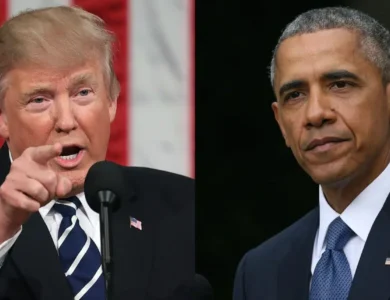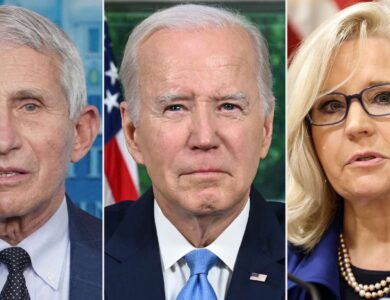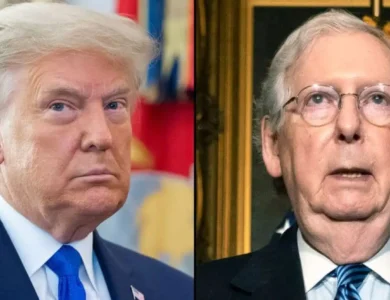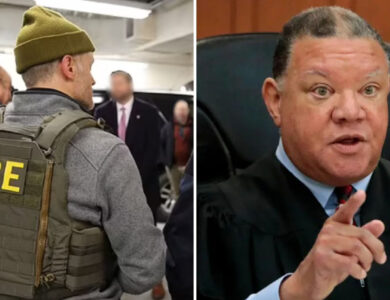Supreme Court Allows Trump To Fire Democrat Appointees On Federal Panel
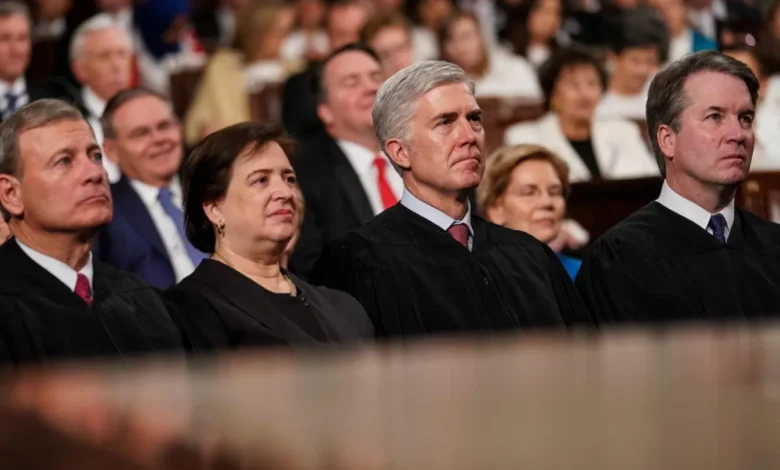
The Supreme Court on Wednesday cleared the way for President Trump to remove three members of the Consumer Product Safety Commission (CPSC), marking the second time the justices have allowed his terminations at independent agencies to stand.
The emergency order overrides a lower court ruling that had blocked the firings and ordered the reinstatement of Commissioners Mary Boyle, Alexander Hoehn-Saric, and Richard Trumka Jr. while litigation continues.
The Supreme Court majority cited its May emergency ruling that upheld Trump’s removal of officials from two other independent agencies, stating the Consumer Product Safety Commission did not differ in “any pertinent respect.”
“Although our interim orders are not conclusive as to the merits, they inform how a court should exercise its equitable discretion in like cases,” the unsigned order reads.
The three justices who were appointed by Democratic presidents dissented publicly, saying their colleagues had “negated Congress’s choice of agency bipartisanship and independence.”
“By means of such actions, this Court may facilitate the permanent transfer of authority, piece by piece by piece, from one branch of Government to another. Respectfully, I dissent,” wrote Justice Elena Kagan, joined by Justices Sonia Sotomayor and Ketanji Brown Jackson.
The decision hands President Trump a swift legal win and reinforces his push to reclaim lost executive authority since returning to office.
The administration has moved aggressively to dismantle removal protections for members of independent agencies, challenging a 90-year-old Supreme Court precedent that allowed Congress to create such safeguards.
The new order marks the second time the Supreme Court has stepped in to allow Trump’s removal of independent agency officials. In May, the justices authorized the firings of National Labor Relations Board member Gwynne Wilcox and Merit Systems Protection Board member Cathy Harris.
Solicitor General D. John Sauer argued that lower courts continue to defy the Supreme Court’s direction—pointing to U.S. District Judge Matthew Maddox’s decision to block Trump’s dismissal of the three CPSC commissioners.
Sauer urged the justices to bypass the lower courts entirely and take up the CPSC case directly on their regular docket to resolve the issue once and for all.
“This case illustrates that the sooner this Court resolves the merits of this application and decides foundational questions about the scope of the President’s removal authority, the better,” Sauer wrote in his application. However, the majority declined to do that and opted instead to send the case back down to a lower court again.
Justice Brett Kavanaugh, Trump’s second appointee to the Court, said he would have gone further with that recommended step. He cautioned that the Court’s inaction could lead to “extended uncertainty and confusion” over whether it intends to overturn the longstanding precedent.
“Moreover, when the question is whether to narrow or overrule one of this Court’s precedents rather than how to resolve an open or disputed question of federal law, further percolation in the lower courts is not particularly useful,” Kavanaugh wrote.
The CPSC commissioners, appointed by former President Biden, were dismissed earlier this year. Trump offered no justification for their removal, even though federal law grants independent agency officials for-cause removal protections across the government.
Under federal law, CPSC commissioners can only be removed by the president for “neglect of duty or malfeasance in office.” Similar protections apply to a few other federal agencies and are ostensibly designed to shield them from direct political influence by the White House.
The commissioners, represented by the consumer advocacy group Public Citizen, urged the justices to avoid involvement in the case, The Hill reported.
“The government now asks this Court to disrupt the status quo and enter a stay that would prevent the Commissioners from serving in the roles that the district court held they are entitled to occupy and that they have in fact been occupying for the last month. The government cannot establish its entitlement to this extraordinary relief,” the group’s attorneys wrote in court filings.
